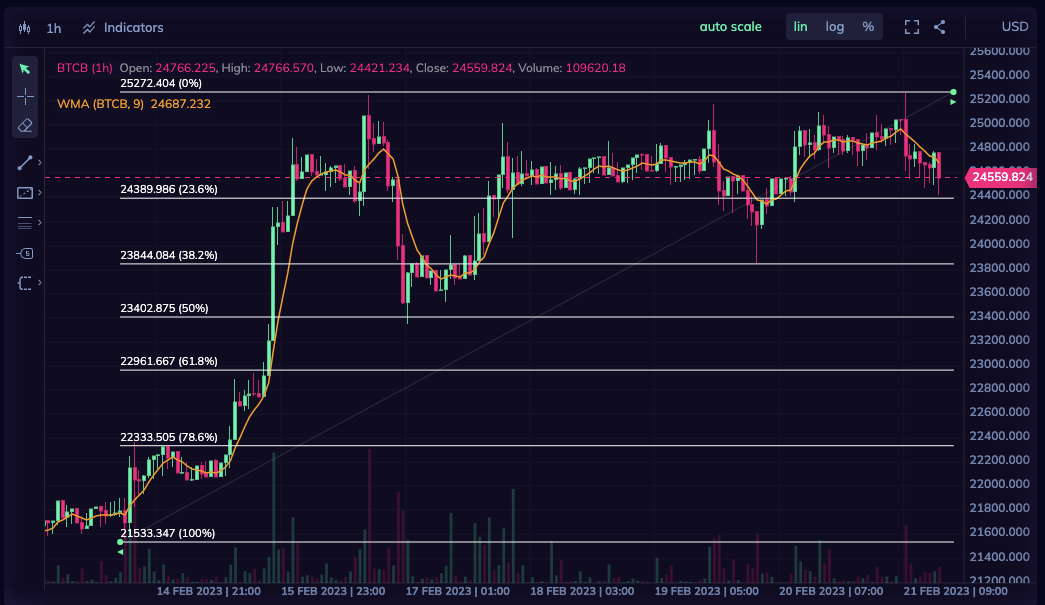Over-the-Counter (OTC)
Over-the-counter (OTC) trading refers to the process of buying and selling financial instruments directly between two parties, without the supervision of a centralized exchange.

Over-the-counter (OTC) trading is an essential aspect of the financial landscape, playing a significant role in various markets, including the increasingly popular crypto market. This article explores the concept of OTC trading, its history, examples, markets, interesting facts, and its pros and cons, with a focus on OTC trading in the crypto space.
Definition
Over-the-counter (OTC) trading refers to the process of buying and selling financial instruments directly between two parties, without the supervision of a centralized exchange. OTC trading takes place through a decentralized network of dealers, who negotiate directly with each other to determine the terms and conditions of a transaction. OTC markets can involve a wide range of assets, including stocks, bonds, commodities, and cryptocurrencies.
History
OTC trading has its roots in the early stock markets of the 19th and 20th centuries when brokers and dealers would trade stocks directly with each other, often over the phone or through telegraph. Over time, the OTC market has evolved and grown, with the advent of electronic communication networks (ECNs) and the internet leading to a significant increase in trading volume and efficiency.
Examples and Markets
- OTC Stocks: OTC stocks are shares of companies that do not meet the listing requirements of a centralized exchange, such as the New York Stock Exchange (NYSE) or Nasdaq. These stocks are typically traded on the OTC Bulletin Board (OTCBB) or the Pink Sheets, both of which provide a platform for brokers and dealers to quote and trade these securities.
- Bonds: The majority of bond trading takes place over the counter, as most bonds are not listed on centralized exchanges. The OTC bond market includes government bonds, municipal bonds, and corporate bonds.
- Derivatives: Many derivatives, such as options, swaps, and forward contracts, are traded over the counter. The OTC derivatives market is extensive and includes various financial institutions, hedge funds, and corporations.
- OTC Cryptocurrency Trading: OTC trading has become increasingly popular in the cryptocurrency market, with many large investors and institutions opting to trade directly with each other to minimize price slippage and maintain confidentiality.
Interesting Facts
- The OTC market is vast, with the Bank for International Settlements (BIS) estimating that the global OTC derivatives market had a notional value of over $600 trillion in 2020.
- Some well-known companies, like Nestle and Roche, trade their shares over the counter in the United States, despite being listed on major exchanges in their home countries.
Pros and Cons
Pros:
- Privacy: OTC trading allows for greater privacy, as transactions are not publicly disclosed, which can be particularly beneficial for large investors who wish to avoid influencing market prices.
- Flexibility: OTC trading offers more flexibility in terms of transaction size, pricing, and settlement terms, as these can be negotiated directly between the parties involved.
- Access to Unlisted Assets: OTC markets provide investors with access to a wider range of assets, including those not listed on centralized exchanges.
Cons:
- Counterparty Risk: OTC trading involves higher counterparty risk, as transactions are not subject to the same regulatory oversight and protections offered by centralized exchanges.
- Liquidity and Pricing: OTC markets can have lower liquidity and less efficient price discovery compared to centralized exchanges, leading to potential price discrepancies and higher transaction costs.
OTC Trading in the Crypto Market
In the cryptocurrency market, OTC trading has become increasingly popular among large investors and institutions, who prefer to trade directly with each other to minimize price slippage and maintain confidentiality. Many OTC desks and brokerages have emerged in recent years, catering to the unique needs of crypto investors. These platforms typically provide a range of services, including price discovery, trade execution, and settlement.
OTC crypto trading offers several benefits, such as reduced market impact, faster execution, and the ability to trade large volumes without significantly affecting market prices. However, like with other OTC markets, participants must consider the increased counterparty risk and the potential for less transparent pricing.
In recent years, some crypto exchanges have also introduced OTC trading desks to complement their traditional order-book trading services. These platforms act as intermediaries, connecting buyers and sellers who wish to trade large volumes of cryptocurrencies directly with each other.
Conclusion
Over-the-counter (OTC) trading has been an integral part of the financial landscape for centuries, and its significance in the crypto market continues to grow. OTC trading offers numerous advantages, including privacy, flexibility, and access to a broader range of assets. However, investors must also weigh the potential risks, such as counterparty risk and liquidity concerns. As the crypto market matures and evolves, OTC trading will likely remain an essential tool for large investors and institutions seeking to execute sizeable transactions with minimal market impact.
At Dexer.io, you have the ability to view token transactions, pricing information, and price charts.




